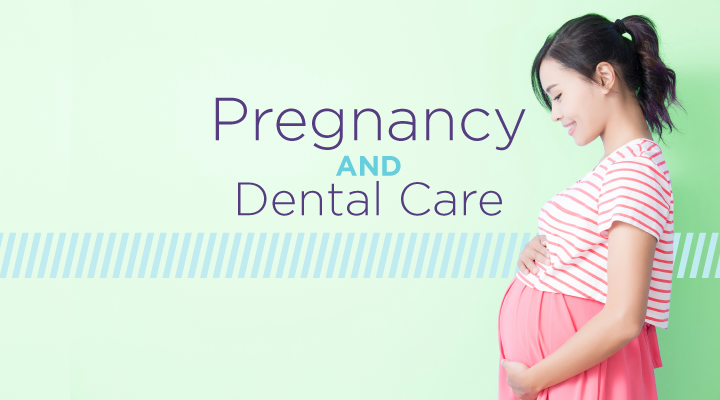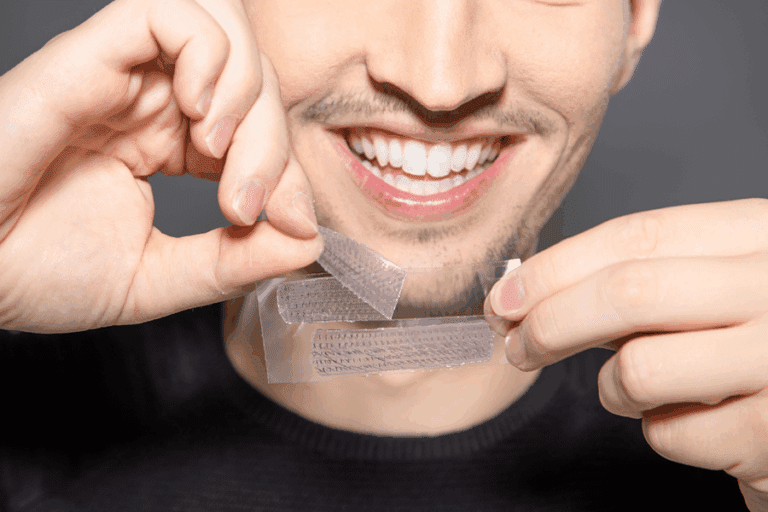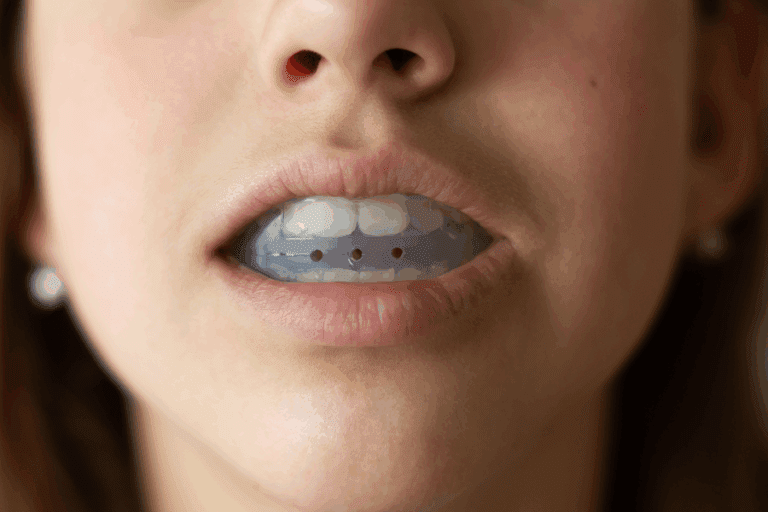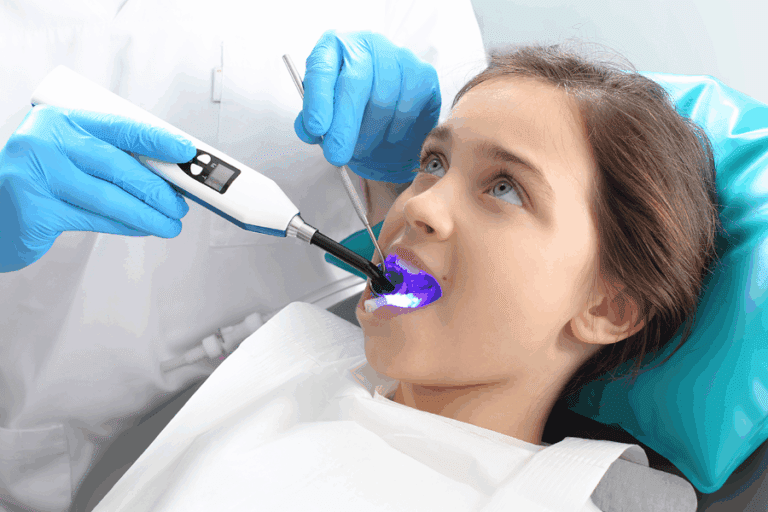Pregnant moms have a lot to keep up with. Between extra doctor visits and preparing for a new family member, oral health care can fall by the wayside. Remind yourself or the expectant mom that oral health during pregnancy should still be a priority. Visiting the dentist consistently allows you to keep tabs of any changes in the mouth’s health. Since pregnancy can impact oral health, it’s even more important to attend your regularly-scheduled appointments and let your dentist know of any changes in your life. Your dentist may even want to see you more frequently during your pregnancy since it can change the mouth’s health. Did you know that some oral health conditions can impact a baby’s own oral health?
All pregnancies are different; you’ve probably already heard that. Some women go their whole time without having any dental problems. But, others experience oral health problems during pregnancy. A dentist visit can help you be mindful of what can happen in the mouth in case you start to experience any oral symptoms.
These are a few of the most common dental health problems during pregnancy that can occur.
Pregnancy Gingivitis
Hormones change quite a bit during pregnancy, causing hot flashes, fatigue, mood changes, and even changes in oral health. If you experience sensitivity or bleeding, swollen gums during pregnancy, you could be experiencing what’s called “pregnancy gingivitis.” A rapid increase in estrogen and progesterone can increase the flow of blood to your gum tissue. Hormonal changes also have the ability to impact the way the body fights infection, too. Because of this, it’s crucial to maintain good daily oral health habits and dental visits during your pregnancy.
Bleeding gums when brushing or flossing is an early symptom of gum inflammation or gingivitis. If left untreated, gingivitis can lead to more serious conditions and impact your health and possibly the health of your baby.
If you’ve had gingivitis before, you’re more likely to get it while pregnant. Discuss with your dentist about what the best plan is for your oral health during pregnancy.
Tooth Decay
There are a few changes that happen in the body during pregnancy that can leave your teeth more susceptible to harm. If your cravings are for carbohydrates or sweets, those snacks will lead to tooth decay faster than healthier options like fruits and veggies. Additionally, if you’re experiencing morning sickness and are prone to throwing up, your mouth is getting more exposure to acid than normal. The acid can erode the enamel on the inner surface of the teeth, usually the front teeth. Rinsing with water afterwards can substantially help reduce enamel erosion.
Salivation can also change in some women when they become pregnant. The decreased flow of saliva can cause dry mouth. A lack of saliva prevents food particles and bacteria from being washed away in the mouth, which is why having a dry mouth over time can lead to a greater risk for tooth decay.
Tissue Overgrowths
One oral health change some pregnant women experience is more alarming than it is dangerous. Tissue overgrowths in the gums can happen, often during the second trimester. Don’t be frightened, as many mistake this for a form of cancer. Rather, this is a side-effect of swollen gums and can be related to excess plaque. Talk to your dentist if you think you’re experiencing this symptom for reassurance. Though they usually disappear when the baby is born, your dentist can help you decide if you’d like to address it before then.
Tips for Dental Care During and After Pregnancy
The American Pregnancy Organization’s website provides insightful advice for pregnant or new moms looking for the best way to approach their dental care:
- After adjusting to the news of your new baby, give your dentist a call to let them know you’re expecting.
- Your dentist will likely recommend you have some preventive exams and cleanings scheduled. See if your plan includes additional benefits during pregnancy; many of our plans do!
- Postpone non-emergency dental work until the second trimester or after delivery, if possible.
- Maintain good circulation by keeping your legs uncrossed while sitting in the dentist’s chair.
- Bring a pillow along if you’d like – this can help keep you and the baby more comfortable.
- Listen to your favorite music with headphones to turn a necessary appointment into a relaxing endeavor.
Additionally, the American Dental Association (ADA) urges pregnant women and new moms to eat a balanced diet, as we all should.
There is no risk in visiting the dentist while pregnant. American Pregnancy.org shares that some women may elect to avoid dental work during the first trimester knowing this is the most vulnerable time of development. However, there is no evidence suggesting harm to the baby for those electing to visit the dentist during this time frame.
Procedures like cavity fillings when pregnant are safe and shouldn’t be avoided. Additionally, your dentist can help you understand and correct any pregnancy-related dental problems you may be experiencing. Routine X-ray examinations can be delayed until after the birth, so discuss your options with your dentist.
Looking for a dentist in your area? Click here.
Interest in learning about baby dental care? Check out The Basics of Baby Bottle Tooth Decay.



